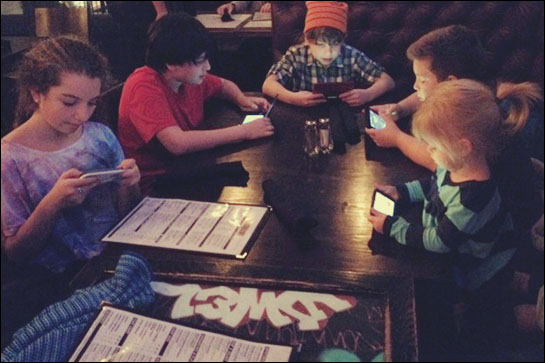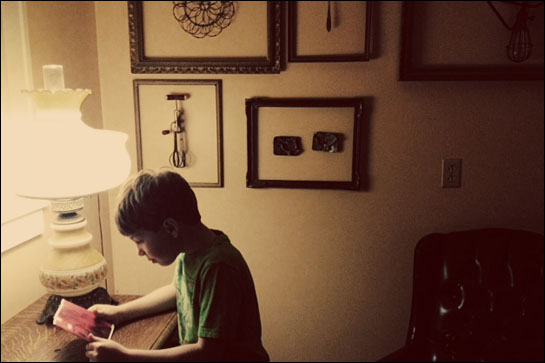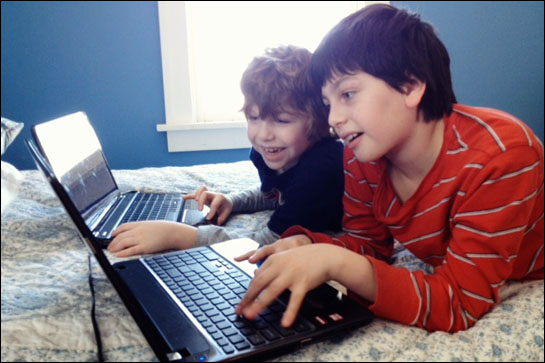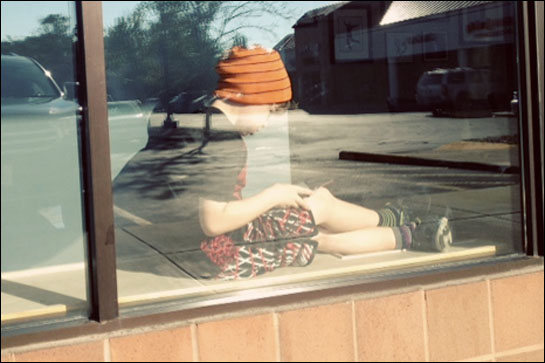
My husband and I try really hard to understand the games my kids are playing. My ex-husband plays a lot of games with them, even incredibly absurd ones, and I watch a lot of the let’s play videos with them. Read more

My husband and I try really hard to understand the games my kids are playing. My ex-husband plays a lot of games with them, even incredibly absurd ones, and I watch a lot of the let’s play videos with them. Read more

For hundreds of years we have been telling children violent stories. Hansel experiences starvation. Gretel watches children being burned alive. Sleeping Beauty has a step-mother who is trying to kill her. Read more

This is a guest post from Greg Toppo, author of the book The Game Believes in You: How Digital Play Can Make Our Kids Smarter. He is USA Today’s national education reporter.
Video games engage us more effectively and more productively than almost any other activity we have come up with. This is why video games make us genuinely happy.
The first question that always comes up when we talk about this research is What kind of game? Read more

This is a guest post from Greg Toppo, author of the book The Game Believes in You: How Digital Play Can Make Our Kids Smarter. He is USA Today’s national education reporter.
More than 15 years ago, the U.S. Surgeon General concluded that intensive media coverage of suicides may serve to “tip the balance” for at-risk young people who are considering suicide. Research suggests that consuming this type of media makes vulnerable people feel that suicide is “a reasonable, acceptable, and in some instances even heroic, decision.” Read more
Taiwan just made it illegal to give kids too much screen time. The most notable thing about the law is that it fails to differentiate types of screen time. For example, watching a Disney movie is a lot less likely to be educational than, say, watching a video that describes photosynthesis. Read more

One of the big reasons that super smart kids do not do well in the work world is their limited executive function—the skill that tells you to stop eating berries and run away from a lion. Natural selection has made us into executive function geniuses (though we still cannot multitask with any competence, at least we know what to do first.) Read more

This is a guest post by Lisa Nielsen. She’s in charge of technology and teacher training for the New York City public schools, and she is the author of the book Teaching Generation Text. None of the opinions in this post reflect the views, opinions, or endorsement of her employer.
There’s nothing the press likes better than a story that generates real parental panic…especially when it has the stamp of science to give a the panic an extra edge. Read more

Screen time is a scapegoat for people grappling with parenting problems of the Information Age. Our kids would be better off if we started taking personal responsibility for our parenting difficulties. But this shift requires us to rethink the meaning of screen time in our lives.
I think about this topic a lot, because we have unlimited screen time in our family, so I’m constantly evaluating and re-evaluating the research on screen time to make sure I still think it’s a good idea. Here are four lies we tell ourselves about screen time: Read more

Today all parents are faced with the choice of how to regulate screen time for their kids. It’s a decision made more difficult because much advice about video games and parenting comes from people who are too scared to question the status quo or people who are too scared to imagine their kids having a childhood different from their own. Read more

You don’t need to worry how your kids use technology because you have no idea what is going to matter when they are older. You have no idea how people will communicate when it comes time for your kids to pay their mortgage and put their kids through college – although you can be pretty sure that they won’t be doing either of those things.
penelope@penelopetrunk.com
